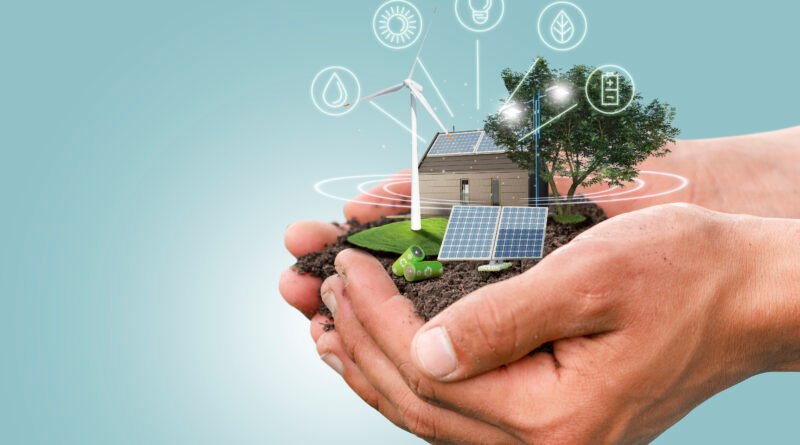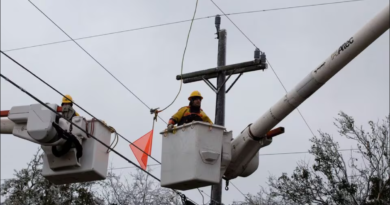Michigan recently approved one of the most ambitious clean energy bills in the nation
Michigan’s Democratic-controlled legislature successfully passed a comprehensive set of clean energy bills, featuring one of the nation’s most ambitious state-level clean energy targets. Senate Bill 271, the flagship legislation, mandates major utilities in the state to achieve 100 percent carbon-free energy by 2040. The bills, including 273, 502, and 519, were approved along party lines in both the Michigan House of Representatives and Senate, where Democrats maintain narrow majorities.
Despite opposition from Michigan state Republicans, who argued that the bills would escalate energy costs, Democratic supporters contended that the measures would combat climate change and decrease energy expenses, particularly for marginalized communities. The strategy involves expanding the use of low-cost renewable energy and capitalizing on federal incentives from the Inflation Reduction Act.
These legislative moves align closely with Michigan Governor Gretchen Whitmer’s plan, who is anticipated to sign the bills. Governor Whitmer had previously issued an executive order outlining the state’s commitment to achieving economy-wide carbon-neutrality by 2050.
Senate Bill 271, the focal point of the legislative package, mandates major investor-owned utilities like Consumers Energy and DTE Energy to transition to 80 percent carbon-free electricity sales by 2035 and achieve 100 percent carbon-free energy by 2040. This legislative push empowers states like Michigan to play a pivotal role in shaping utilities’ transition strategies, aligning with broader national goals outlined in the Paris Agreement.
Michigan’s new clean energy mandate encompasses not only renewable energy but also sets a target for 60 percent of utility electricity sales to come from wind, solar, and other renewable sources by 2034. While environmental groups express concerns about provisions allowing nuclear power and fossil gas power plants with carbon capture, the bill aims to balance environmental impact with practical energy solutions.
Critics argue that the bill fell short of initially proposed targets, but proponents emphasize the positive impacts, including lifting the state’s cap on rooftop solar and committing to building 2,500 megawatts of battery storage capacity by 2030. The 2040 carbon-free target is seen as a significant step toward accelerating carbon reduction, with potential benefits for public health, job creation, and economic activity. Various industry groups have praised the legislation for its potential to attract investments, create jobs, and drive economic growth in the clean energy sector.
Beyond the clean energy standard
Michigan legislators have approved a series of bills aimed at bolstering energy efficiency, addressing historical environmental injustices, and facilitating the transition from fossil fuels to renewables. Senate Bill 273 mandates an increase in the annual energy-efficiency improvement requirements for utilities from 1 percent to 1.5 percent, with a focus on offering more efficiency programs in low-income communities and promoting diverse workforces.
Senate Bill 502 directs the Michigan Public Service Commission to ensure equitable access to efficiency programs and mandates utilities to devise plans for enhancing reliability and affordability. This is particularly relevant in a state that has grappled with significant power outages in recent years. Additionally, Senate Bill 519 establishes a state office for community and worker economic transition to assist those affected by the shift from fossil fuels to renewable energy.
Also Read About –
Kentucky Embraces Renewable Energy Shift Amidst Emerging Regulations
House Bill 5120, passed by the Senate, controversially transfers authority over clean-energy project siting and permitting from local governments to the Michigan Public Service Commission. Critics argue that this undermines local control, while proponents assert that it aligns clean energy projects with the commission’s existing permitting authority for other energy initiatives. The bill addresses concerns that opposition to clean energy projects in 26 localities may impede climate goals, with media reports linking such opposition to misinformation campaigns.
Courtney Bourgoin, Midwest senior policy and advocacy manager for Evergreen Action, emphasized that House Bill 5120 positions Michigan competitively in the Midwest for clean energy development. With the goal of achieving 100 percent carbon-free energy by 2040, Michigan aims to utilize these legislative measures as regulatory tools for a swift transition to clean energy. The focus now lies in effective execution of these initiatives.
Source – https://www.canarymedia.com/




